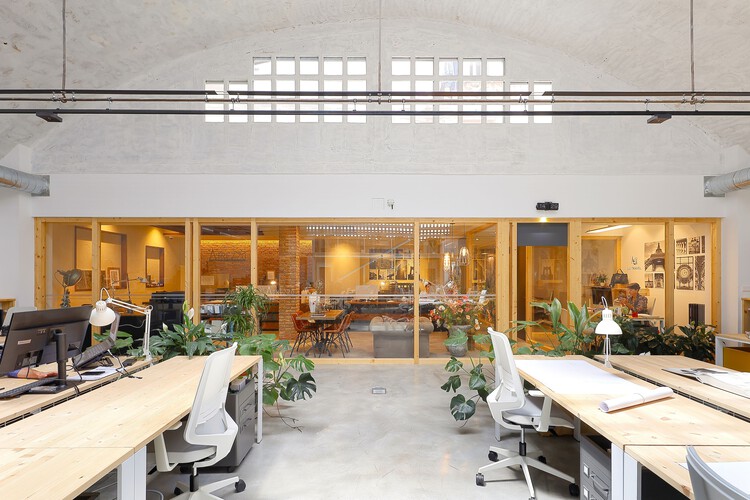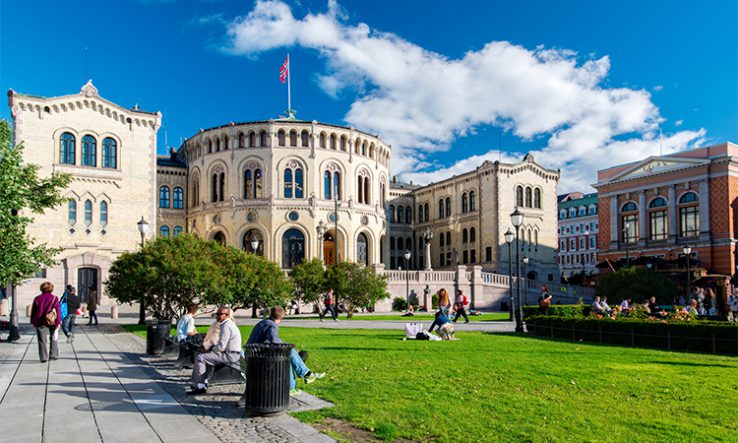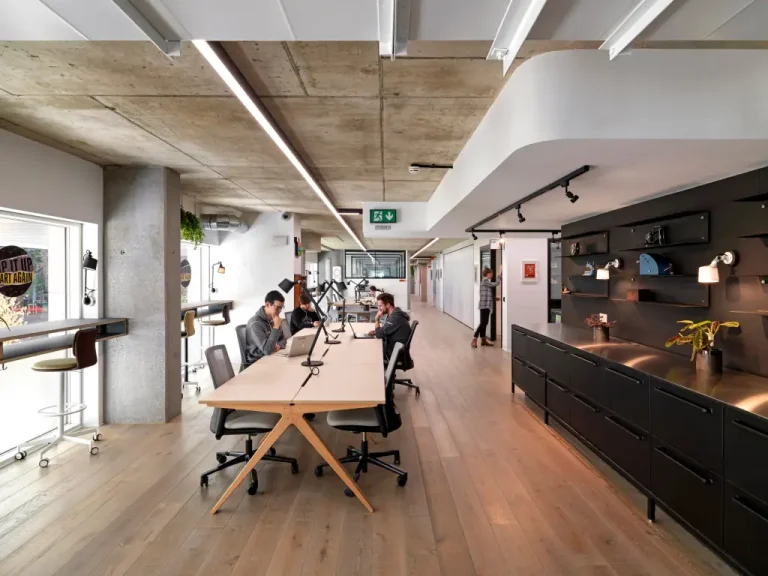For decades, skilled Nigerians who wanted to work abroad have targeted the same places: the United Kingdom, Canada, and the United States. While these countries are still popular, they are becoming overcrowded, costly, and more difficult to enter. At the same time, some countries that rarely featured in the news are now welcoming skilled African professionals with open arms.
Portugal has introduced a new labor migration framework, Finland offers a Talent Boost program, and Japan has a Skilled Worker scheme. Together, they signify a significant shift for 2025. Countries in Europe and Asia are grappling with aging populations and labor shortages, which are driving a global recruitment push that includes many Africans, especially Nigerians.
Here are practical and up-to-date guides to countries now accepting skilled workers from Nigeria. You will learn how to legally find jobs, apply for visas, and settle into your new life abroad.
1. Portugal – Europe’s Friendly Gateway for Skilled Workers
Portugal has quickly become one of the easiest places in Europe for Nigerian professionals to work. As an EU member, its visa policies are much more flexible than those of its northern neighbors. Lisbon recognizes Africa as an essential partner for labor, particularly in healthcare, tourism, and construction.
In-Demand Sectors:
- Healthcare (nurses, caregivers, lab scientists)
- Construction and civil engineering
- IT and software development
- Hospitality and tourism
How Recruitment Works:
Many Nigerians find jobs through Portuguese companies registered with the Instituto do Emprego e Formação Profissional (IEFP), the national employment institute. Employers usually sponsor visa applications after confirming your qualifications and references.
Visa Application Steps:
- Get a formal job offer or work contract.
- Apply for a Portugal Work Visa through VFS Global Nigeria in Abuja or Lagos.
- Submit your passport, job contract, proof of accommodation, police clearance, medical insurance, and proof of income.
- Pay the visa fee (around ₦45,000–₦60,000) and attend a biometrics appointment.
- Processing takes 30–60 days.
Official Application Link: https://visa.vfsglobal.com/nga/en/prt
- Most skilled workers earn between €1,200–€2,000 monthly.
- Rent in Lisbon averages €500–€700 per month, while food and utilities cost around €250–€400.
- Nigerians appreciate Portugal’s welcoming locals and mild weather, making it easier to adjust.
2. Saudi Arabia – Huge Demand under Vision 2030
Saudi Arabia’s Vision 2030 program is modernizing the kingdom’s economy, creating a big recruitment push in healthcare, construction, and technology. Nigerian professionals are especially in demand in hospitals, universities, and engineering projects.
In-Demand Sectors:
- Nursing, medical labs, and doctors
- Oil and gas engineering
- IT, cybersecurity, and AI
- English language instruction
How Recruitment Works:
Licensed Saudi employers hire through authorized agencies. Nigerians can also find verified job postings on the Saudi Labor Portal or connect with recognized recruitment offices in Lagos and Abuja.
Visa Application Process:
- Receive a job offer and visa authorization number from the Saudi Ministry of Labor.
- Get a medical screening at an approved clinic.
- Apply at the Royal Embassy of Saudi Arabia in Abuja with your employment contract, passport, and certificate of good conduct.
- Once approved, collect your visa and residence permit (Iqama) upon arrival.
Official Application Link: https://visa.mofa.gov.sa
- Healthcare workers can earn between $2,000–$4,000 monthly, with tax-free salaries and employer-funded housing.
- The cost of living is moderate, and many Nigerians adapt well to Riyadh or Jeddah, where there are established African communities.
3. Finland – The Supportive Migration Hub
Finland’s Talent Boost and Fast-Track Work Permit programs make it one of Europe’s most welcoming places for professionals from developing countries. Finnish employers are hiring for both permanent and contract positions.
In-Demand Sectors:
- Software engineering and ICT
- Mechanical and electrical engineering
- Nursing and caregiving
- Renewable energy and clean technology
How Recruitment Works:
- Employers post job openings on Job Market Finland and Work in Finland.
- Once you receive a job offer, your employer starts the residence permit application online.
Visa Application Steps:
- Create an account on the Enter Finland portal.
- Complete the residence permit application for an employed person.
- Book an appointment at the Embassy of Finland in Abuja for biometrics.
- Submit your job contract, educational certificates, proof of funds (at least €2,000), and valid insurance.
Official Application Link: https://enterfinland.fi
- Average salaries in Finland’s tech sector range from €3,500–€5,000 monthly, with high living standards and family benefits.
- Nigerians enjoy free schooling for their children and strong welfare programs.
4. South Korea – Seeking Skilled Workers in a High-Tech Nation
South Korea is expanding its E-7 visa program for foreign experts, including Nigerians, to address labor shortages in robotics, manufacturing, and healthcare.
In-Demand Sectors:
- Automobile assembly and repair
- Electronics and robotics
- Construction engineering
- Nursing and aged care
Recruitment Pathways:
- Applicants often secure jobs through Korean recruitment networks such as HRD Korea or direct employer listings.
- Some Nigerians enter short-term training programs that lead to jobs.
Visa Application Steps:
- Get a job offer from a licensed Korean employer.
- Apply for an E-7 Work Visa at the Embassy of South Korea in Abuja.
- Submit your employment contract, degree, passport, and proof of experience.
- Processing takes about four weeks.
Official Application Link: https://overseas.mofa.go.kr/ng-en/index.do
- Skilled workers typically earn between ₩2.5–₩4.5 million ($1,800–$3,200) monthly.
- Living costs in Busan or Incheon are lower than in Seoul, and Nigerians adapt well to Korea’s structured work culture.
5. Romania – An Affordable Gateway for Skilled Africans
Romania is becoming one of the most budget-friendly EU destinations for Nigerian workers. Labor shortages in agriculture, manufacturing, and healthcare have led to easier recruitment rules for non-EU nationals.
In-Demand Sectors:
- Manufacturing and logistics
- Construction and transportation
- Nursing and caregiving
- IT and telecommunications
Visa Process:
- Secure a job offer from a Romanian employer registered with the General Inspectorate for Immigration.
- Your employer will apply for a work authorization on your behalf.
- Once approved, apply for a Long-Stay Work Visa (D/AM) at the Romanian Embassy in Abuja.
- Submit proof of employment authorization, a medical certificate, and accommodation details.
Official Application Link: https://evisa.mae.ro
- Average monthly salaries range from €900–€1,500.
- Cities like Cluj-Napoca and Iași are affordable, and the Nigerian community is growing.
- Overall living costs (rent, food, utilities) stay below €600 monthly for singles.
6. Japan – Opportunities under the Specified Skilled Worker Visa
Japan’s Specified Skilled Worker (SSW) visa provides Nigerians with a rare chance to work abroad without needing a degree. The emphasis is on skills, experience, and basic Japanese language ability.
In-Demand Sectors:
- Elderly care and nursing
- Construction and agriculture
- Food processing and hospitality
- Shipbuilding and maintenance
Application Process:
- Pass the SSW skill and Japanese Language (JLPT N4 or higher) tests.
- Get a job offer from a Japanese company registered under the SSW scheme.
- Apply at the Embassy of Japan in Abuja with your employment contract, test certificates, and proof of accommodation.
Official Application Link: https://www.ng.emb-japan.go.jp
- SSW holders earn between ¥180,000–¥250,000 monthly ($1,200–$1,700).
- Many employers cover housing and transportation.
- Japan’s clean environment, safety, and advanced technology make it a unique place for Nigerian professionals.
Tips for Nigerian Skilled Workers Planning to Relocate
- Authenticate your certificates early. The Nigerian Ministry of Education and Ministry of Foreign Affairs must legalize your degree and work references.
- Apply only through official portals. Steer clear of third-party “agents”; use direct embassy links or government job boards.
- Budget wisely. Most countries require proof of at least $2,000–$4,000 in relocation funds.
- Prepare for cultural adjustment. Learn basic language phrases and research local workplace customs.
- Connect with Nigerian diaspora groups. Many of these groups offer housing assistance and support for newcomers.
In 2025, the global demand for talent is changing rapidly, and Nigeria is at the center of that opportunity. While traditional destinations tighten immigration, countries like Portugal, Finland, Romania, Saudi Arabia, South Korea, and Japan actively seek skilled Africans who are determined and disciplined.
By using official recruitment channels, securing genuine job offers, and preparing both financially and mentally, Nigerians can forge successful careers abroad without facing long waits typical in the UK or Canada. The gap in the global labor market presents a chance for Africa, and now is the time to take action.





Leave a Comment